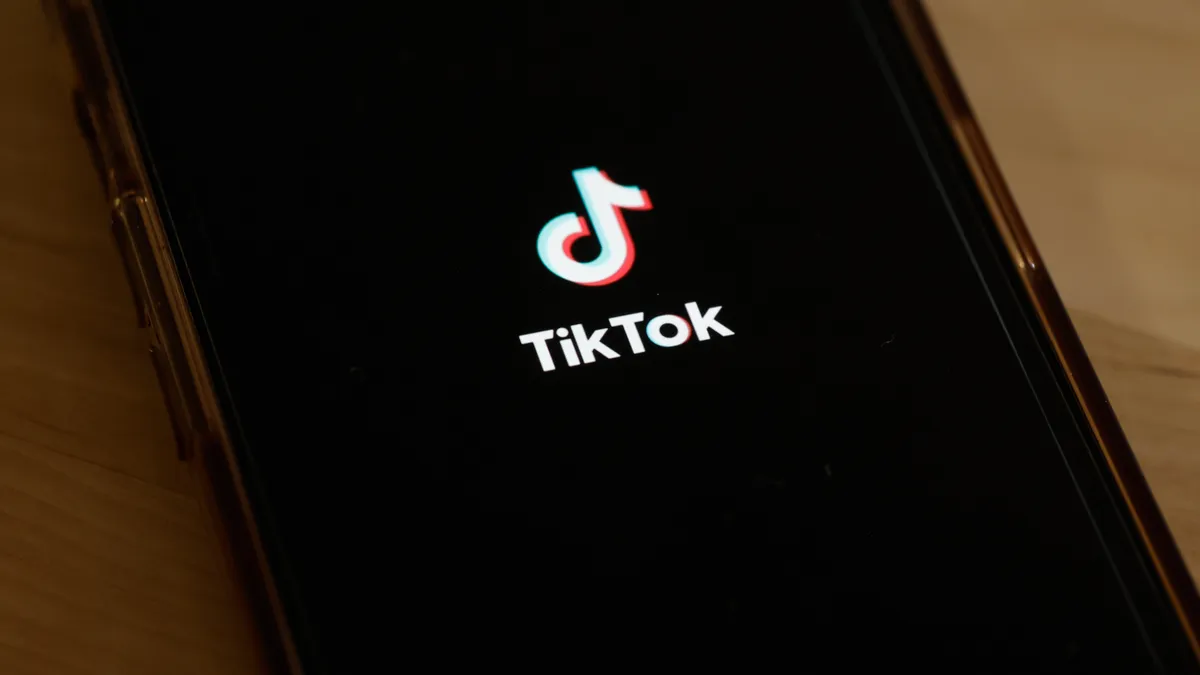President Donald Trump extended the deadline to ban TikTok for 75 days on Friday, marking yet another reprieve for the social media platform.
A TikTok ban went into effect earlier this year after the Supreme Court rejected an appeal to halt a law banning the app unless its China-based parent company ByteDance sold its stake. Trump's January executive order to halt the initial ban for 75 days was an attempt to make TikTok a joint venture with ownership shared between ByteDance and a U.S.-based owner. In early February, Trump signed another executive order to create a sovereign wealth fund that could be used to purchase TikTok.
For brands selling on the app and influencers inhabiting For You pages, the future of the platform is shaky. The dissolution of TikTok would also mean saying bye-bye to TikTok Shop, which is known for social commerce and its ability to reach Gen Z. It's also a source of income for many retailers, brands and small business owners. Legacy brands are turning to it, too: QVC Group, the company known for live shopping, plans to stream 24/7 on TikTok Shop.
Though its future is unknown, TikTok’s customer base remains loyal to the platform — and to its e-commerce site. TikTok Shop sales soared the week the platform was banned, between Jan. 19 through Jan. 25, research from Charm.io found.
TikTok Shop already had a heavy hold on consumers and surpassed $100 million in sales during 2024’s Black Friday. Last year, TikTok Shop customers spent an average of $700, according to a survey by PartnerCentric.
TikTok users kept shopping on the platform even when the ban was in effect.
TikTok Shop sales jumped to $200 million the week of Jan. 12, up 19% from $168 million the week of Jan. 5, Charm.io found.
Charm.io data shows that TikTok Shop saw $32 million in sales Jan. 19, the day the ban was lifted.
Based on the data, Charm.io CEO Alex Nisenzon noted that the ban encouraged consumers to buy instead of deterring shoppers.
“When the ban was announced or there was an assumption that there might be a ban, a lot of people really weren't willing to accept that,” Nisenzon said. “They could still use the app, but they were kind of doubling down. So I think that's what kind of explains it, right? It was really amazing to see because ultimately, I think the ban would have been really bad for not just the sellers of the products, like a lot of these smaller brands and shops, but also all of the solopreneurs and creators who are making an income off of the platform.”
What’s next for TikTok shoppers?
Consumers would have a handful of different options if TikTok were permanently banned, according to Mikhail Ishkhanov, senior director of product strategy and sales enablement at SOTI.
Instagram Reels and YouTube Shorts are already dominant in video-first shopping according to Ishkhanov. Additionally, Pinterest and Snapchat are strong visual platforms with AR-driven shopping elements. Decentralized options such as Bluesky and Mastodon, both alternatives to X, formerly called Twitter, offer new commerce opportunities as emerging platforms, too.
Live shopping on Amazon and Facebook is also gaining traction as real-time shopping experiences grow, he said.
“A TikTok ban wouldn’t signal the end of social commerce — it would simply shift consumer behavior,” Ishkhanov said. “Social commerce is about immediacy and people want instant discovery and seamless checkout. If TikTok is banned, the question isn’t whether social commerce will continue, but where consumers will shift.”
Robert D’Loren, co-founder and chairman of ORME, a social commerce platform for beauty, predicts there’d be a surge on Instagram Reels and YouTube Shorts with the potential for new platforms focused on video-first shopping.
“What’s important is that brands remain agile, ready to pivot where their customers go,” D’Loren said in emailed comments. “The platforms may change, but the fundamental drivers — authentic content, community engagement, and seamless commerce — will remain the same.”
However, it's unlikely any other app would reach the heights TikTok has. What made Tiktok successful, Nisenzon said, is how it first nailed the social experience of the app, then introduced e-commerce.
“They didn't start with this as a shopping platform where you can buy stuff from creators via livestreams,” Nisenzon said. “A lot of these video shopping platforms that are popping up now are trying to start or lead with that concept and that notion and I think that's kind of the big difference and the reason why they're not gaining as much traction as Tiktok has, because there's not that audience there.”
















